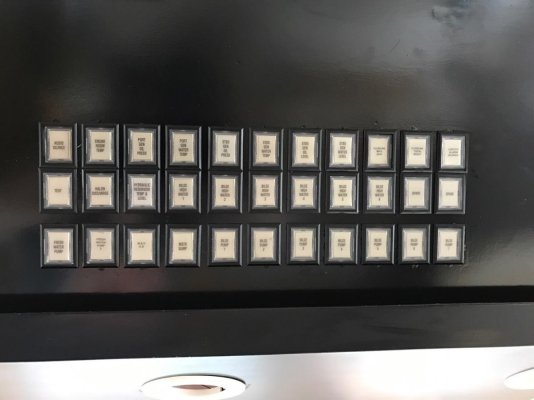I asked this question before, and now I'll ask you directly. Given your self admitted focus on modernization, how long before this system becomes insufferably antiquated, 18 months? As we dinosaurs wrap are minds around the technology, possibilities, and cost, it's only reasonable to ask if the technology will be obsolete before we get it installed, and only to be repeating the same installation process every few years?

Loaded Question: If it weren't for the cost, would you replace your antiquated analog engines with modern technology, or is your mind not open to modern technology simply for the sake of it's possibilities?

I'm not opposed to new technology. Have been on the bleeding edge of technology, that too many times went in a different direction, leaving me unsupported. As I lack the electronic background and the skill to do much more than "plug and play", my fear is that the labor and technical support cost will make the hardware costs seem insignificant. While I see some interesting features, there's nothing yet that motivates me to be an early adopter (it's still very early in this market). When it comes to these type of boats, I bought my last one first. If I embrace this technology, it won't be till it's fully matured and I can feel confident of only doing it once.
Ted
I'll try my best to answer.
First question:
Given your self admitted focus on modernization, how long before this system becomes insufferably antiquated, 18 months?
With the PLC, my guess is a very long time (relative term I know). I would think 10+ years.
How would you compare that to other options. Remember I still have manual switches there, but the engine monitoring, bilge monitoring, electrical monitor on it, I would argue because it is used in factories and many many other non recreational boats, it is built to last much longer than day a nmea2k system.
With the IoT items, 5-10 years would be my guess. It because I'm into this entire system sub 1000$ dollars, that is a reasonable ROI compared to other options (security monitoring).
"Loaded Question: If it weren't for the cost, would you replace your antiquated analog engines with modern technology, or is your mind not open to modern technology simply for the sake of it's possibilities?

"
I like this question loaded or not. When I first saw this boat, we owned a 58' SonShip, which I loved, my wife saw the potential in this boat, and I agreed for one reason. The engines. I threaded DD8v74TA's for lugger L6140's. Why? Typical time between rebuilds, improved fuel economy.
That being said, if someone would offer up to install JD/Luggers with similar longevity, installed for free, and it improved my current situation, I would do it, not because it is not analog, but because they would have 3500 hours less on them

all other thunders being equal.
Could not agree with you more on your last statement. But what are we comparing. Remember my new technology is limited to only those items I use when I'm not on the boat, so limited chance for being stranded. And those are consumer items so no technical experience is needed. As it relates to to the PLC (engine monitoring, system monitoring, switching). These things are set and forget, solid, proven. If you are comparing the complexity of analog gauges vs digital, well you were not in the market anyway, if you are comparing a PLC system compared to say a maratron system, well I would argue, with this you get more reliably, with more people able to fix it, and for less cost. Besides, I still have kept my mechanical gauges in the engine room and my existing analog alarms, in adaption to the system alarms.

Are you asking as if I am suggesting anyone with mechanical gauges go out and replace them. I'm not, I'm suggesting if you are refuting your boat or want the benefits indescribed, a PLC should be considered and IMHO chosen over installing something else.
If you want a security system or monitoring all the things I describe like water levels, doors, windows, hatches, Motion, cabin temps, please consider the IoT revolution because it is easy to use, cheap, and pretty darn cool. If you don't want a system to monitor those things, then poor a scotch and have a cigar and spend some time on TF!!! Or steaming to your next destination.
Hope that answers your questions.





